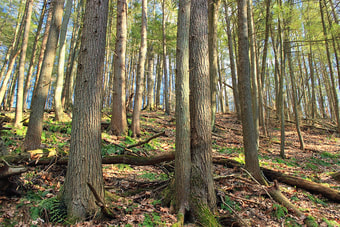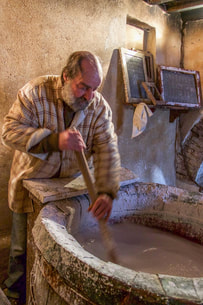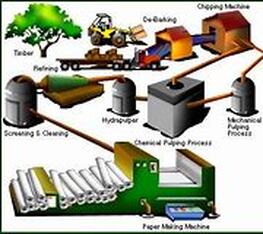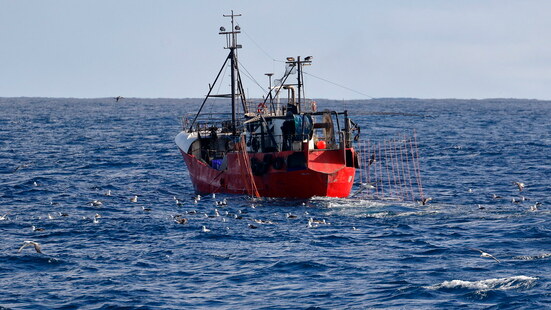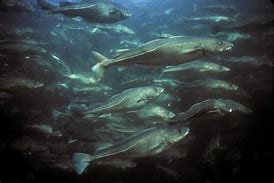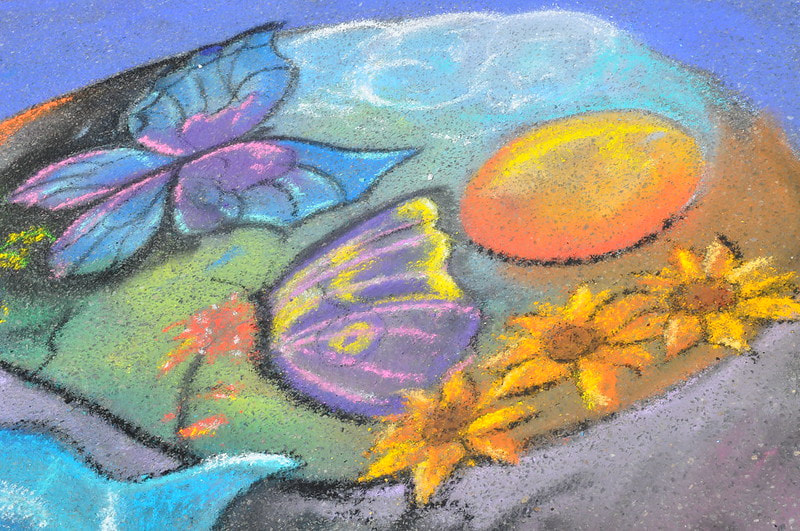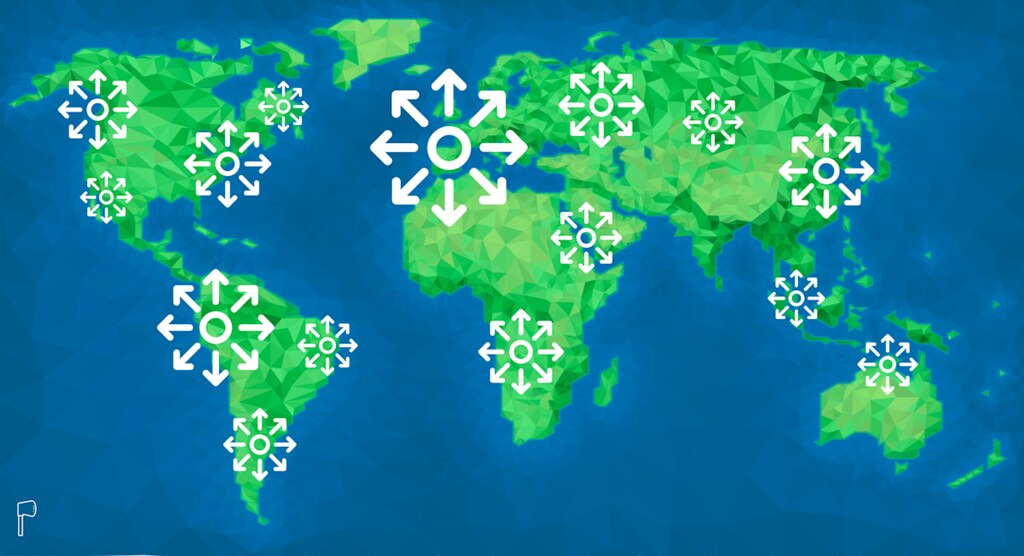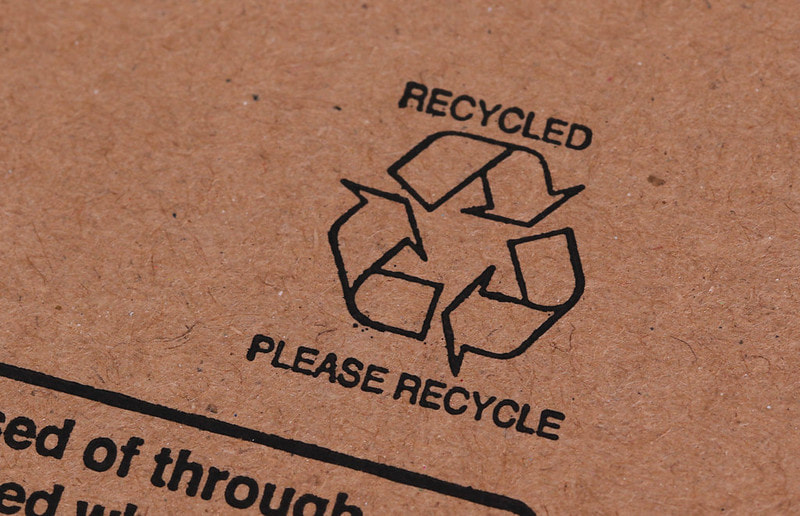Stewardship Stories
The stories and history featured below about growth, expansion, stewardship efforts, and in some cases exploitation, may be prophetic. Such stories may include the fueling of westward expansion and America's growth by exploiting its native forests, depletion of Borneo and Amazonian rain forests for ranching, palm oil, and eucalyptus plantations, erosion of the great Grand Banks fisheries with the over fishing of the outer banks cod, and the exchange of the great plains grasslands and roaming herds of buffalo for wheat and corn to feed the world. In all these the emphasis was on growth and opportunity first and if at all Stewardship was a last consideration.
Our existence and its relationship with our world seems more complex than ever. The concept of a sustainable existence, which is relatively new to the discussion, is only just starting to be understood. Advocating to learn more and to achieve Responsibly Sustainable systems is the goal. To be successful we need to understand which systems can be sustainable and how do get there. In these remaining pages are some of the stories of where we have been, where we are, and how we might get to a Responsibly Sustainable future.
The stories and history featured below about growth, expansion, stewardship efforts, and in some cases exploitation, may be prophetic. Such stories may include the fueling of westward expansion and America's growth by exploiting its native forests, depletion of Borneo and Amazonian rain forests for ranching, palm oil, and eucalyptus plantations, erosion of the great Grand Banks fisheries with the over fishing of the outer banks cod, and the exchange of the great plains grasslands and roaming herds of buffalo for wheat and corn to feed the world. In all these the emphasis was on growth and opportunity first and if at all Stewardship was a last consideration.
Our existence and its relationship with our world seems more complex than ever. The concept of a sustainable existence, which is relatively new to the discussion, is only just starting to be understood. Advocating to learn more and to achieve Responsibly Sustainable systems is the goal. To be successful we need to understand which systems can be sustainable and how do get there. In these remaining pages are some of the stories of where we have been, where we are, and how we might get to a Responsibly Sustainable future.
The Adventure Begins
How do we to refocus from a consuming focused society to a society based in symbiotic relationship with nature? Throughout history societies judged to be successful have been focused on acquisition, consumption, profit, and growth. Today we may be learning that our future reality will need to be different. We still teach to aspire, strive toward the conquest, and succeed through exploitation, and we label this success. We know the familiar, "Go West Young Man". But is that sustainable? Can the earth accommodate our success plans? How can we live symbiotically with our environment while accommodating humanities needs? Understanding our past is always a good place to start.
Logging the North American forests - stewardship vs. exploitation
Old Growth Forests
Bruce Canton, a well known civil war author, grew up in Benzonia, Michigan in the northern lower peninsula. In a book, " Waiting for the Morning Train", about his childhood experiences at the turn of the 19th century, he artfully depicts the coming and going of the logging industry in northern Michigan. Similar stories can be told about New York, Ohio, Pennsylvania, and many other states. In the late 1800's the country was rapidly expanding and building with timber. The coming of the logging industry was followed by loss of the native environment, and while temporarily supplying jobs, generally a loss in biodiversity and a complete change in the land and landscape. In some locations virtually no original growth remains. Where it does it can be a priceless experience to walk among these old and historic trees. Old growth forests, as well as, teeming fishing grounds, wild waters running true, mountain lakes, and wild prairies, provide memories that few actually get to experience today. As an example of our impact on our Earth, world forest coverage has declined by about 32% since pre-industrial times; with all the loss of biodiversity, carbon sequestration, and lost adventure that can be imagined. The consequences of such dramatic impacts on the earth are many. The harvesting of North America's extensive original growth forests was dramatic and productive and exploitive. Jobs and new lives were created, but eventually the logging related jobs disappeared and decline of the new rural communities resulted. Eventually new farm land, along with some second growth forest, replaced the original forests. Eventually corporate farming again reduced jobs and aging and declining farm and rural communities were often left. These communities, once were birthplaces of amazing new technologies, but lost biodiversity. Deforestation fueled our freedom to explore the world and the growth of America's new frontiers for a time, but lost biodiversity, global warming, and often poverty and sometimes racism, remain today.
The Grand Banks Fishery - Symbiosis vs. Consumption
The convergence in the latter 20th century of capitalist opportunity, incomplete science, and limited understanding of the complex environment of the Grand Banks, resulted in the once abundant Grand Banks fishing grounds collapsing with loss of an industry and much of the bounty that the Grand Banks once supplied. The link below provides excerpts of this tale and of the valiant, but flawed and ultimately unsuccessful attempts, to be Responsibly Sustainable in maintaining the Grand Banks fishing grounds and the industries they supported.
Developing a Circular Economy
Development of what is being called the "Circular Economy" refers to economic systems generally aimed at eliminating waste and the continual use of resources, especially renewal resources where possible. Circular systems employ reuse, refurbishment, remanufacturing, repurposing, and recycling to create a close-loop system(s), minimising the use of resource inputs and the creation of waste, pollution and carbon emissions. Ideally, all "waste" should become "input" for another process. This regenerative approach is in contrast to the traditional linear economy, which has a "take, make, dispose" model of production. Discussion and development of Circular Economic systems is gaining favor, especially in Europe. The European Union has introduced legislative and non-legislative measures, including support for research and program development, targeting areas where action at the EU level can bring real added value.
At the EU level, the Action Plan for the Circular Economy and several other policy documents have demonstrated a strong commitment to move towards a low-carbon and circular economy. While the calls for a new economic model grow louder, it is clear that the transformation of markets and industries on a large scale will not be an easy achievement. More information about EU support related to aspects of a forest based circular economy can be found at https://circulareconomy.europa.eu/platform/en/sector/forest-based-industries
At the EU level, the Action Plan for the Circular Economy and several other policy documents have demonstrated a strong commitment to move towards a low-carbon and circular economy. While the calls for a new economic model grow louder, it is clear that the transformation of markets and industries on a large scale will not be an easy achievement. More information about EU support related to aspects of a forest based circular economy can be found at https://circulareconomy.europa.eu/platform/en/sector/forest-based-industries
